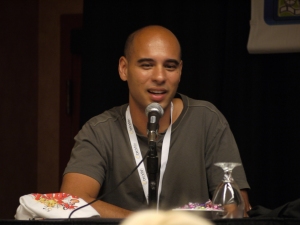For most of high school, I thought many of my teachers were idiots. I didn’t think they were bad at teaching, it’s just that I thought many of the assignments they gave us were pointless: rote memorization, filling out worksheets, papers on inconsequential topics, etc.
My life was filled with pointless stupid assignments I was doomed to execute. This experience continued into my work life. “If you have time to lean you have time to clean” is a phrase I’ve heard more often than I care to admit.
Some of these tasks seemed to have value while others seemed like busywork created simply to extract as much labor from me as possible even if that labor was largely pointless.
Like many people I dreamed of the day I might work for myself and end this barrage of pointless work. But alas the epoch of meaningless tasks haunts me still.
My company is incorporated in Nevada, a state that requires a use tax. But since I don’t actually conduct any of my business in Nevada I’m exempt. Yet I still have to file an empty use tax return every. single. month. Pointless.
Slowly I began to see that life, human life, with governments and health insurance is a life filled with pointless assignments and tasks. There is no escaping it. But I wanted freedom so I created it. By refusing to do anything pointless ever again.
Here is how:
1) Accept that I don’t always see what is and isn’t pointless.
For example, I thought math was mostly dumb in school. After all, when would I need to use math in my adult life. That’s why humans invented calculators. Yet I have built amazing spreadsheets to analyze sales data, do my own finances, and create forms for my clients. All of which are based on the logic I learned in math class. True I probably don’t need to know trigonometry, but having a basic understanding of how logic works has been incredibly valuable.
This step isn’t really about whether something is or isn’t pointless and stupid. It’s really just about accepting that I may not see why I need to do something. It’s an invitation to relax and be open to the idea that something could have value even if I can’t see it.
2) Realize that thinking something is stupid, pointless, or a waste of time is simply a judgment, assessment, and interpretation I’m making.
For a long time, I felt firm in my conviction that making a bed is a pointless act. After all, I’m just going to get back in it at the end of the day. I felt similarly about cleaning. I felt like cleaning dishes mattered, but not much else, everything fell victim to entropy so why try and fight it.
If you had visited my home at any point in my early to mid-twenties you would have seen this philosophy born out in empty pizza boxes and scattered clothing.
I interpreted cleaning as meaningless because I couldn’t see the impact it had on my mind, my self-respect, and the feeling tone of my home. To my twenty year old self, cleaning was mostly meaningless. To my nearly forty year old self, cleaning is an essential part of self-love and of integrity. So much so that I even make my bed when I leave a hotel.
The key here ISN’T that my twenty year old self was wrong, but rather that it was just one of many ways of viewing cleaning. My nearly forty year old self view is also just one of many. The difference is that viewing cleaning as an act of self-love feels more empowering, enlivening, and also increases other people’s ability to enjoy my home.
If everything is an interpretation then you can take anything that’s pointless and give it meaning. You can also take something that has a lot of meaning (you don’t like) and make it pointless.
A capacity that’s essential for leaders and anyone seeking depth through personal growth.
3) Realize that I can choose to create meaning and empower anything that I do.
Once I realized that I was making up that things were stupid or cool I began to realize I had the power to shift how I felt about things.
The first time I really saw this was when I was at the monastery cleaning toilets. The cleaning kits we had included big rubber gloves that were always several sizes too big. This made the process of scrubbing toilets difficult and awkward. At first, I felt frustrated by the gloves, by having to clean the toilets, and by how gross it all was.
But at the monastery, we were constantly encouraged to look at things with compassion and curiosity. So one day I decided to clean the toilet without the gloves.
I watched as my aversion to touching toilets arose, but I realized it was just a judgment. I began to see the love I was demonstrating in my actions. Here was a thing no one wanted to deal with, but dealing with it meant a lot. If the toilets were left unclean they would smell worse and worse. The aversion in others using it would grow. People would be more and more careless.
But as I cleaned I was taking all of that aversion on. I was creating a space that would have people feel more comfortable in a space that’s hard for many people to feel comfortable in.
I began to see the remains of this very human process of expelling waste as an expression of life. What I was doing was just like weeding a garden or wiping a child’s nose. It was an expression of love.
Slowly I began to empower this act that I found aversive. Once I had done that I could apply it to every part of my life. Parking in a spot further away was a gift to someone who couldn’t walk as well as me. Buying a slightly dented can meant someone else got a nice pristine one.
More and more I realized how much control I had over how I empowered things and so I started empowering things that I used to feel victimized by.
Instead of going to class and feeling bored because I ‘already knew’ what they were talking about, I saw how I could study the way the teacher taught and figure out what was and wasn’t working.
Instead of feeling annoyed when I missed my bus I saw each missed bus as a discovered moment to read or meditate.
Slowly and surely I began to transform the pointless into the meaningful.
It didn’t mean I didn’t try to eliminate excess work. I still looked for effective ways to get things done and eliminate excess tasks, but when I encountered something that I couldn’t work around easily I began to look for how to empower them.
Not only did my experience of my life change, but very often I found a way to learn something new from something I would have considered a waste of time before.
This is the miracle of discovering meaning in the meaningless. And it’s something you can discover too if you’re only willing to give it a shot.
Love, Toku





